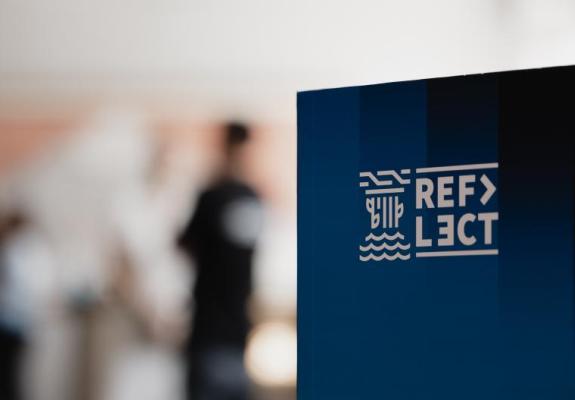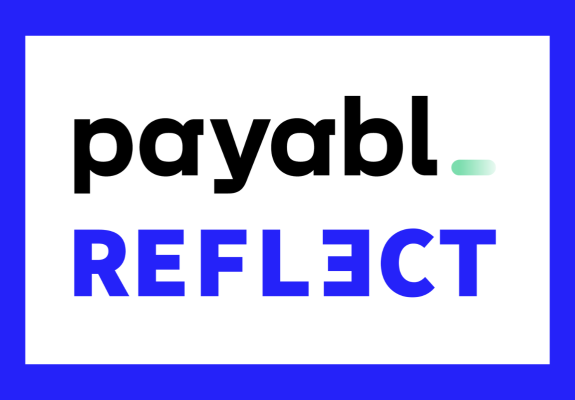Christina Orfanidou: Generative AI Has Evolved from an Enabler to a Co-Passenger in Business Operations
Deloitte Director (Data & AI, Enterprise Risk Management Consulting in Risk Advisory) on Transforming Business Operations and the Importance of Mentorship
In today's business landscape, the significance of AI and data integration into operations cannot be overstated. As organizations increasingly rely on these technologies to drive innovation and efficiency, they face numerous challenges in achieving optimal outcomes. To shed light on these issues, we interviewed Christina Orfanidou, an expert in AI and data strategy, to provide her insights.
Christina's extensive experience includes leading Deloitte’s Data and Artificial Intelligence services and supporting both private and public sector organizations in leveraging AI for decision-making and strategic development. In this interview, she discusses the key challenges organizations face when embedding AI-driven solutions into their operations and how she helps them overcome these hurdles. Furthermore, Christina emphasizes the importance of proving AI’s business value to top management, managing AI-related risks, and addressing employee resistance.

While we see the AI market continuing to advance rapidly, we also see that, even in cases when organisations have adopted AI tools, many challenges are faced in achieving the expected outcomes. When starting off, the main challenge we see is proving AI’s business value to top management in order to gain executive buy-in, along with the necessary funding. The scaremongering around the potential risks of AI in the media does not help: we are now living in an era of mistrust and this trickles down into how people view the introduction of AI into their work and everyday life. Organisations do realise that AI requires risk management, however, knowing how to effectively implement AI risk management is another big challenge we are witnessing.
The scaremongering around the potential risks of AI in the media does not help: we are now living in an era of mistrust and this trickles down into how people view the introduction of AI into their work and everyday life
Lastly, another challenge we observe is employee resistance. Organisations initiate expensive AI projects which then go on to fail because people just don’t trust AI and don’t use it. Recognising the above, we always advise our clients to follow a holistic approach when adopting AI technologies revolving around both business and people. It is important to have clarity about the desired business objectives to be achieved via AI while also considering process- and people-related aspects carefully. Educating and preparing all people involved in the use and risk-management aspects of AI is the cornerstone of a successful implementation.
The rapid evolution of AI and its continued integration into organisations has indeed brought a lot of changes in the risk advisory space. Our services have transformed to respond to both the new challenges and the opportunities that AI has brought: firstly, the need for organisations using AI to manage a new layer of risks has emerged and secondly the opportunity of leveraging AI to perform risk management in a more proactive and automated way has not been ignored.
To tackle the need of managing AI-related risks, we have developed Deloitte’s Trustworthy AI framework, a holistic AI risk management framework which we leverage in order to support our clients in using AI responsibly, ethically and safely. The framework provides guidelines for developing ethical safeguards across seven key AI dimensions: transparency/explainability, fairness/impartiality, robustness/reliability, privacy, safety/security, responsibility, and accountability. It also includes guidance for adhering to applicable regulations, such as GDPR, and the upcoming AI Act, as it prompts risk evaluation, control mechanisms, and overall compliance.
For the second need, of leveraging AI in risk management, Deloitte’s AI Institute has developed many proprietary assets. Indicatively, these can be utilised to assist with activities such as dynamic risk sensing from external and internal data sources, dynamic AML monitoring using structured and unstructured data, Generative AI-supported contract/document reviewing, intelligent fraud/anomaly detection systems, and many, many others which we can adapt for each customer’s data sources and specific risk management or business needs.
It is true that since late 2022 with the release of several consumer-facing applications like ChatGPT, DALL.E, and Lensa, which spurred the democratization of Generative AI, we have seen a significant shift in how both consumers and organisations understand AI’s potential. As Generative AI can mimic the human creative process by creating novel data similar to the kind it was trained on, AI has been elevated from an enabler to (potentially) a co-passenger in business operations and decision-making processes. Although early traction has been through consumer releases, like ChatGPT, which has already transformed the way we work, Generative AI also has the potential to go even further. It can add contextual awareness and human-like decision-making to enterprise workflows which could radically transform how we do business. We may be only just beginning to see the impact of solutions like AI-supported call centres which are designed to help enable natural language customer service interactions, and other generic applications such as knowledge management tools which can accelerate information discovery and analysis in multiple business contexts. At this point, it is important to stress that Generative AI is still in its infancy and not without risks. Some of the most important risks to address relate to privacy and security, managing bias, transparency and traceability of results, IP ownership, and equal access, especially for those at greater risk of job displacement.

Mentorship is extremely important in any field and, having benefited tremendously from it throughout my career, it is very important to me to give something back to the young generation of professionals starting off in the field of AI. I believe that by sharing my experience, insights and lessons-learnt, from my own professional successes but even more so, my own failures, I can inspire and encourage the next generation of professionals and entrepreneurs. In my opinion, the role of a mentor in technology and AI should stretch way beyond just providing support in the technical aspects of one’s work, so I never focus on that. The younger generation is probably already better-versed than me in some technical aspects of AI! What I try to focus on is helping mentees understand the business context of technology development and adoption, how to navigate common challenges, which are often people-related, and how to channel their own passion into developing technology with a purpose. Understanding our own responsibility towards building impactful and ethical solutions to solve the world’s problems, big and small, is for me perhaps the most important message to convey!
My advice to young professionals and students aspiring to build a career in AI and data science is to focus equally on building both technical and business skills. Something we see often is graduates with outstanding academic records and technical skills who, however, cannot apply their skillset to the real world. I strongly recommend aspiring AI professionals to develop business skills along with technical ones. Only by being able to contextualize AI and data science problems, will they be able to develop products which are useful and are successfully adopted by organisations and individuals. Data Science is not only about programming algorithms; it’s mostly about problem solving and that is an acquired skill.
Data Science is not only about programming algorithms; it’s mostly about problem solving and that is an acquired skill
Closing, I would like to emphasise that as the employment landscape changes, so are hiring requirements. Graduates and students should not stress about choosing or having chosen the right or wrong degree. Nowadays there are many opportunities to upskill through a variety of online courses, to obtain certifications, and to enter the realm of data science and AI even late in one’s career or after completing a different degree. Sometimes, having received training in a specific scientific domain before moving into data science can provide significant advantages, enabling you to become a really good problem-solver in that specific domain!







